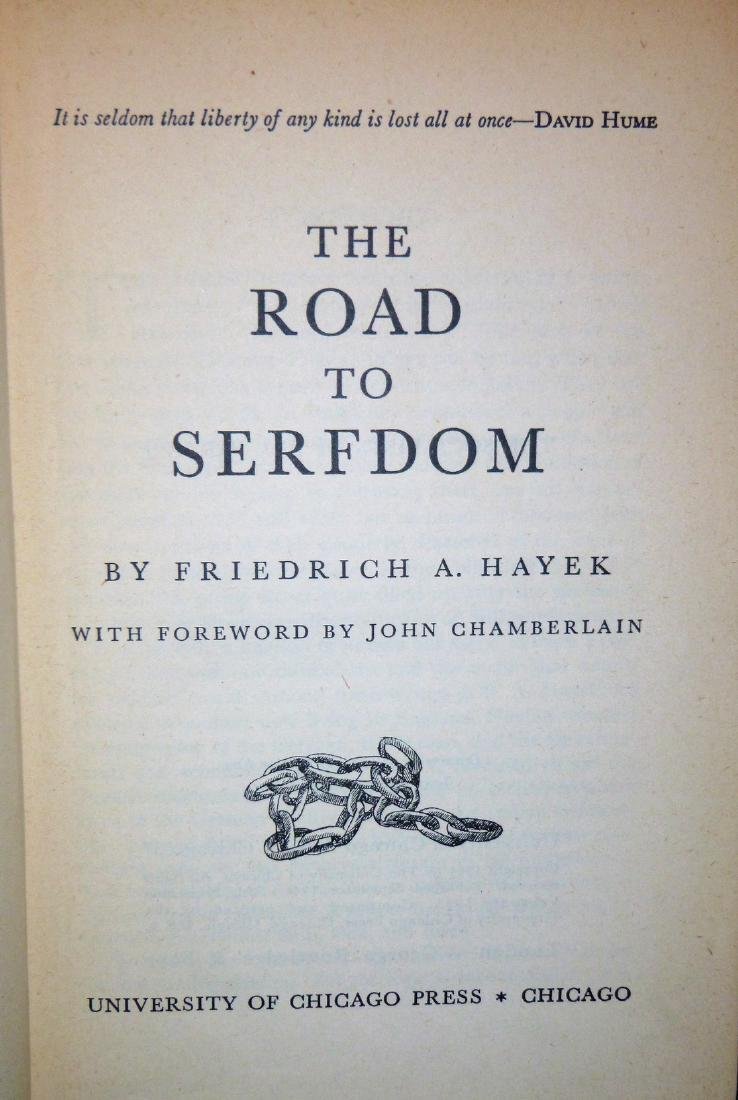

For this reason, the publisher decided to call this "the definitive edition." It truly is. Caldwell has added helpful explanatory notes and citation corrections, among other improvements. It contains a foreword by the editor of the Hayek Collected Works, Bruce Caldwell.

Hayek.Ī Tiger by the Tail: The Keynesian Legacy of Inflation by F.A.The description below is written for the Definitive Edition of Road to Serfdom which is sold in the Mises Store and can be previewed here: Google Preview.įinally, here is an edition of Road to Serfdom that does justice to its monumental status in the history of liberty. Hayek.Ĭhoice in Currency: A Way to Stop Inflation by F.A. HayekĮconomic Freedom and Representative Government by F.A. The Confusion of Language in Political Thought by F.A. Intellectuals, Hayek argued, are attracted to socialism because it involves the rational application of the intellect to the organisation of society, while its utopianism captures their imagination and satisfies their desire to make the world submit to their own design.

The Road to Serfdom is republished in this impression with The Intellectuals and Socialism originally published in 1949, in which Hayek explained the appeal of socialist ideas to intellectuals – the ‘second-hand dealers in ideas’. There is an enduring demand for Hayek’s relevant and accessible message. Since then it has been frequently reprinted and the electronic version has been downloaded over 100,000 times. This condensed edition was republished for the first time by the IEA in 1999. Then, in April 1945, Reader’s Digest published a condensed version of the book and Hayek’s work found a mass audience. Its publishers could not keep up with demand, owing to wartime paper rationing.

On its publication in 1944, The Road to Serfdom caused a sensation. Such ideas, Hayek argued, were now becoming similarly accepted in Britain and the USA. Hayek argued that the rise of Nazism was not due to any character failure on the part of the German people, but was a consequence of the socialist ideas that had gained common currency in Germany in the decades preceding the outbreak of war. Hayek set out the danger posed to freedom by attempts to apply the principles of wartime economic and social planning to the problems of peacetime.


 0 kommentar(er)
0 kommentar(er)
